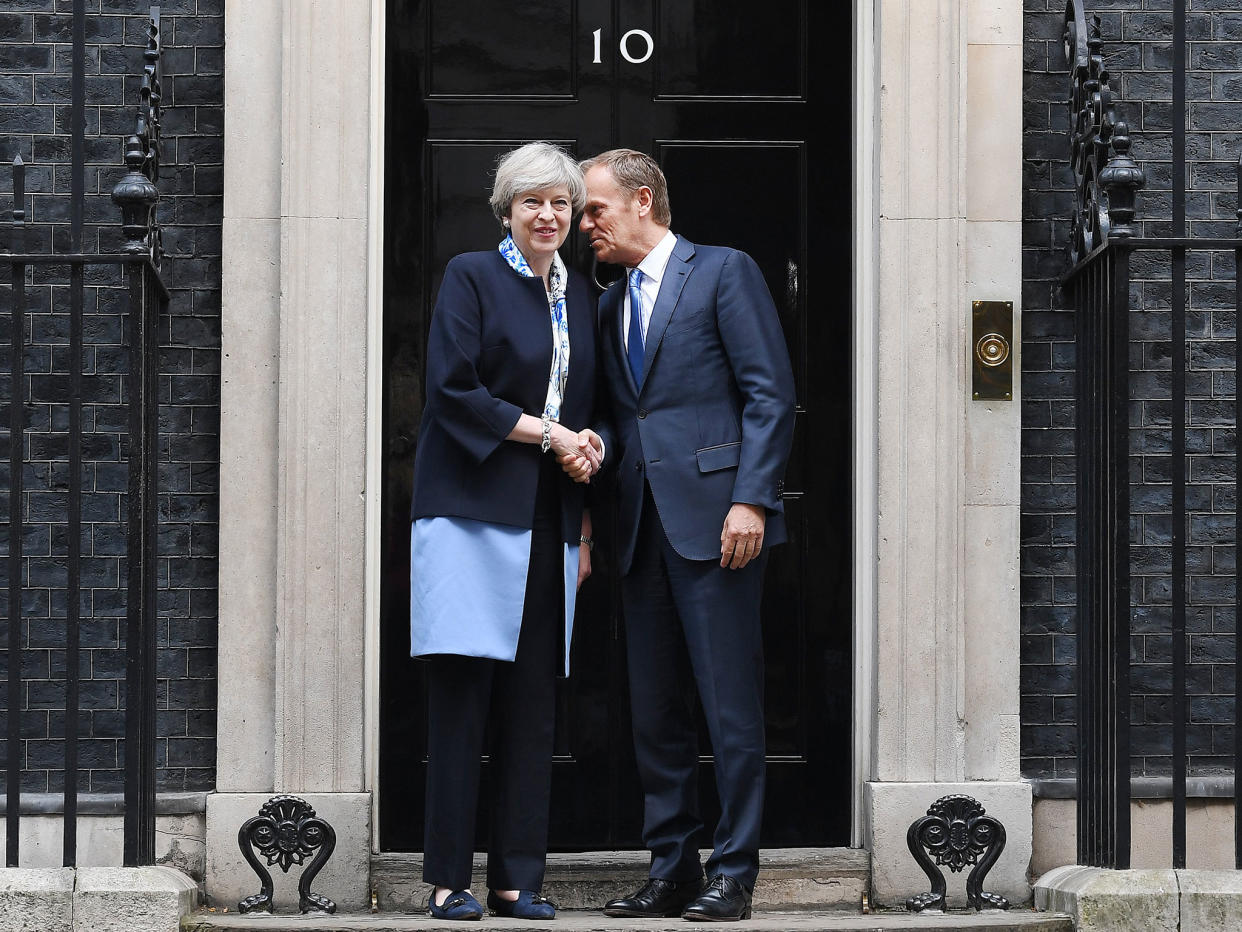Theresa May's comments on EU migration have freed her from the Eurosceptic right wing of her party

It is often argued that Theresa May, whatever her personal beliefs, is the prisoner of the Conservative Party’s right-wing Brexiteers. For Jeremy Corbyn, the aim of the opposition is to fight a “Tory Brexit” in the name of a softer, gentler version, while for Tony Blair the “hard-Brexit Conservative Party” is the reason for trying to stop Britain leaving the EU altogether.
But this week something important didn’t happen. This week the Prime Minister, in comments to journalists on her trip to the Middle East and in talks with Donald Tusk, President of the European Council, hinted that free movement of people between Britain and the EU could continue for a transitional period after Britain leaves in 2019. And what you’d expect to happen – that the Eurosceptic faction of Tory MPs would go bananas – never did.
In particular, two Tory MPs who are more important than they seem failed to denounce May’s sellout to the continentals. Liam Fox, the International Trade Secretary, may have been sidelined in the Brexit negotiations – he is not on the new Brexit cabinet committee, for example – but he has long been a significant indicator of Tory Eurosceptic opinion. It was his candidacy for the party leadership in 2005 that forced David Cameron to a notably more anti-EU position, promising to pull the Tories out of the main centre-right grouping in the European Parliament. His return to the Cabinet last year reinforced the human shield of Brexiteers around May.
And he has said nothing about the Prime Minister’s new stance. Instead, an ally of his was quoted in the Financial Times: “Liam is constantly saying that we have been a member [of the EU] for 44 years. So long as it’s only for a short period and it’s in law, I think he would be pretty relaxed about it.”
The other MP is Steve Baker, the organiser of the backbench Eurosceptics under the deceptively bland banner of the European Research Group. Much breathless twaddle is talked about Baker’s use of a WhatsApp group to organise his colleagues, which sounds exciting because WhatsApp has been identified by Amber Rudd, the Home Secretary, as a terrifying threat to civilisation as we know it. It is also a way of people communicating with each other. In the old days they would have done it by phone and notes delivered by Commons messengers. But Baker is significant because he is good at co-ordinating like-minded Tory MPs, and he was important in pressing for the referendum and in fighting the Leave campaign. He has described his attitude to the Prime Minister’s position as “zen”.
Theresa May has achieved this remarkable state of transcendental calm on her backbenches because she excels in two essential skills in politics: timing and counting. She has delayed invoking Article 50 for long enough to give herself time to prepare for the negotiations. During the past nine months she convinced her Eurosceptic hardliners she was one of them, above all by saying at the Tory party conference that Britain would be excluded from free movement and would no longer be subject to the rulings of the European Court of Justice. But she didn’t say when. And now that the two-year Article 50 procedure has been started, she can afford to be flexible about that.
Invoking Article 50 changes everything. It locks in Fox and Baker, who understand that – contrary to the hopes of Blair and the centre party supposedly waiting to be born – Britain’s departure from the EU is about as irreversible as anything is in politics.
But May can also count. She knows that there is a majority in the House of Commons for a soft Brexit. If she comes back from Brussels with a transition period of two or three years during which Britain continues to accept free movement and ECJ rulings, she can get it through. Even if the 80 Tory Eurosceptic MPs become less relaxed about a transitional deal over the next two years, they don’t have the numbers to do much about it.
In any case, they know, and May knows, that once Britain actually leaves the EU, at midnight on 29 March 2019, the structure of politics will move further in their favour. Once Britain is out, it would be much harder to get it back in than it is to stop it leaving in the first place. They are prepared to accept a high price to reach that promised land.
All the pressure during the Brexit negotiations, then, comes from the EU 27. Far from holding May hostage, the Fox-Baker axis is happy to give her the chance to tack back towards the kind of soft Brexit she needs to reach a deal. If she ever were a prisoner of the hard-Brexiteers, by invoking Article 50 she has got out of jail free.

 Yahoo News
Yahoo News 
